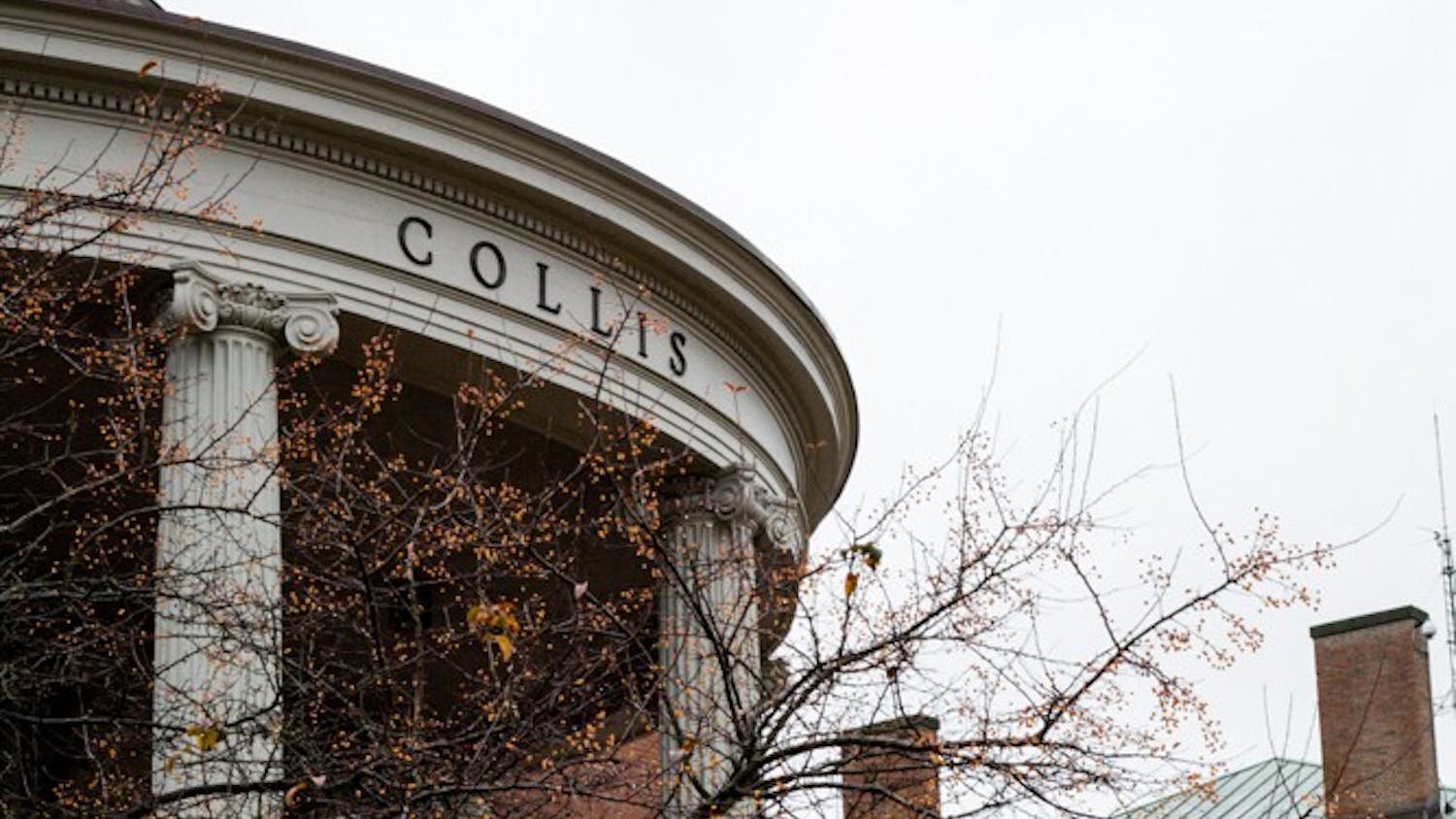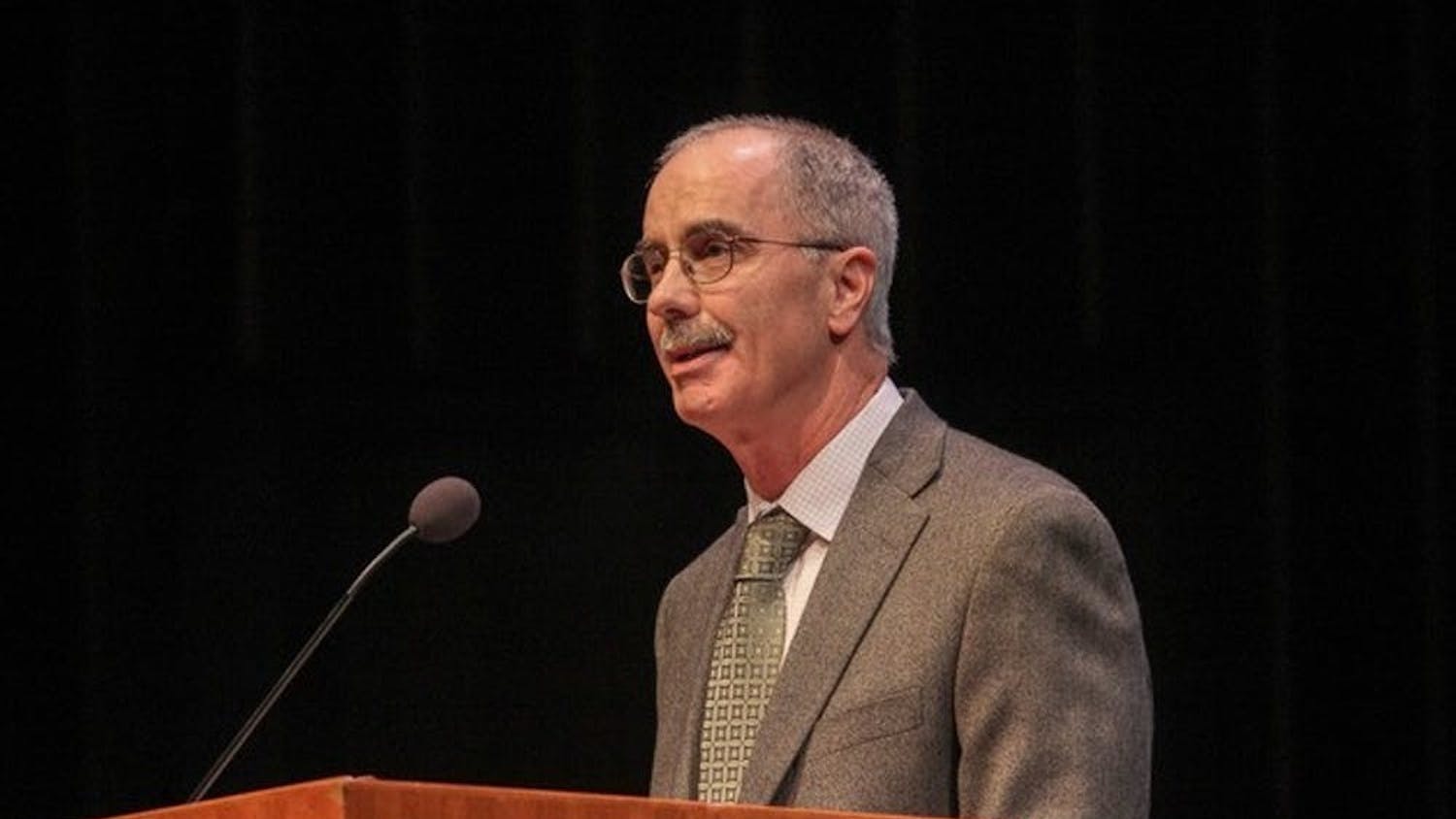The results of the most recent Student Assembly elections are disappointing, not because the Khan-Muñoz campaign lost, but because I am worried that students who are struggling may feel left behind if their immediate needs sink into the background. After the year that many students have gone through at Dartmouth, with isolation in virtual classes, whiplash for varsity sports teams, permanent closure of libraries, cuts to study abroad programs and general inaction on the part of the administration, Student Assembly’s responsibility to act and move us toward material change is more clear now than ever.
I’m hoping students can work with incoming SA president Jennifer Qian ’22 and incoming SA vice president Maggie Johnston ’22 to implement many of the policies both campaigns shared and help them keep promises they have made throughout their campaign. To show a commitment to full and effective student representation, the incoming administration should offer multiple cabinet-level positions — such as Chief of Staff, Finance Director and Project Coordinator — to outsiders who have never served in Student Assembly. Doing so would increase representation of underserved students in Student Assembly, reflecting the diversity of student interests and experiences. Experience can take many forms, including experience as a FGLI student, as a student of color or as a student with disabilities. Groups like Access Dartmouth, the International Students Association, the Black Student Athletes Association, Dartmouth First Gen, the Dartmouth Student Mental Health Union, the Sexual Assault Peer Alliance and more continue the work of advocating for students who are often left behind. A cabinet that includes perspectives that have not typically been centered in SA debate could lead to innovative policy, ease divisions in the student body, and exemplify both elevating student voices and acting on their concerns.
When those most affected by gaps in administrative action don’t have a significant role in decision-making, Student Assembly members may be unclear on where SA can work to improve on student representation. Moving into a new SA administration is the chance for a range of campus communities to come together and fully utilize the capacity of SA to create a healthier campus through tangible policy changes. Many students have, unfortunately, become disengaged with student government; however, after extensively seeking to understand the capabilities of SA as a candidate, it became clear to me that there is room for positive shifts in governance. For example, SA is explicitly given the power to amend its own constitution. Proposing amendments to the SA constitution and making sure the SA cabinet brings in fresh perspectives and policy concerns are steps that students can move toward together. Increasing outward transparency, advertising open meetings, and allowing students to give continuous, formalized feedback to student representatives would immensely improve student understanding and respect for SA’s work.
While meditation can be a useful practice, I don’t believe a meditation app is the most effective way to allocate over $2000 in funds in the interest of student mental health. I believe SA leaders need to make it clear to the administration that the mental health crisis on campus and across the country is urgent. As students’ mental health suffers, it becomes more and more intolerable to seek band-aid fixes. SA should work with the administration to hold them to major commitments to mental health and wellness that are not just quick fixes and apps, but instead include sustainable investments such as hiring more counselors. Students still need significant change when it comes to addressing pressing issues related to disability, mental health, financial difficulties and other Student Assembly and administrative policies. I hope that SA knows that students are watching to see that the student activities fee they pay is used as effectively as possible.
I ask that SA be in communication with the Committee on Standards to consider whether and how revisions to Dartmouth’s medical withdrawal policy can be made. SA can use their role as intermediaries to remind the administration in meetings of the urgency of hiring an increased number of psychologists and psychiatrists at Dick’s House. SA can also work to consider dedicating a portion of its funds to supporting Dartmouth’s 24/7 mental health hotlines; while SA cannot directly donate to charity due to restrictions on spending, SA fiscal activity has shown that there is room for creative ways for SA to allocate its funds that are not simply a cash transfer. SA’s Coop gift card program, food pantry initiative, Dartmouth Coach ticket program spending and compensation in the form of Amazon gift cards to student survey-takers make it clear that while SA’s budget is partially limited in use, it appears within the rules of the SA constitution to purchase items or services that support students. I propose that part of SA’s funding toward mental health could go toward compensating volunteers who provide their assistance to a student mental health hotline.
Senators could speak to Dick’s House administrators to work through whether and how online scheduling for mental health services appointments could be implemented. SA can support students with mobility impairments in pushing for construction authorization to increase the College’s physical accessibility with its platform as a voice for students. SA should use its role as a mediator between students and the College administration to build a case that the elimination of loans for students from families making under $5000 per year is feasible. Student representatives could use College budget data and historical trends at universities in similar financial circumstances to ensure that SA advocacy to the administration is evidence-based, logical and speaks directly to the reality of student need.
SA can supplement investment in the food pantry initiative with advocacy to the Dean of the College to relay how realistic and beneficial increasing Dartmouth’s pool of emergency funds could be for students who are financially struggling. Student representatives should support international students in their concerns regarding visa procurement and maintenance by regularly surveying the International Student Association on student experience receiving support from the Office of Visa and Immigration Services (OVIS). If SA stands by faculty members who support the instatement of an Asian American Studies program by providing a public statement of support for it, there may be increased likelihood for the College administration to take action.
I think it’s time that we inform students of their ability to act on their concerns and move toward a campus where people who are seen as “outsiders”— those who simply don’t already hold major institutional power — are empowered. Dartmouth has the ability to do better.
Sebastian Muñoz-McDonald ’23 was a candidate for vice president in the 2021 Student Assembly election.
The Dartmouth welcomes guest columns. We request that guest columns be the original work of the submitter. Submissions may be sent to both opinion@thedartmouth.com and editor@thedartmouth.com. Submissions will receive a response within three business days.



